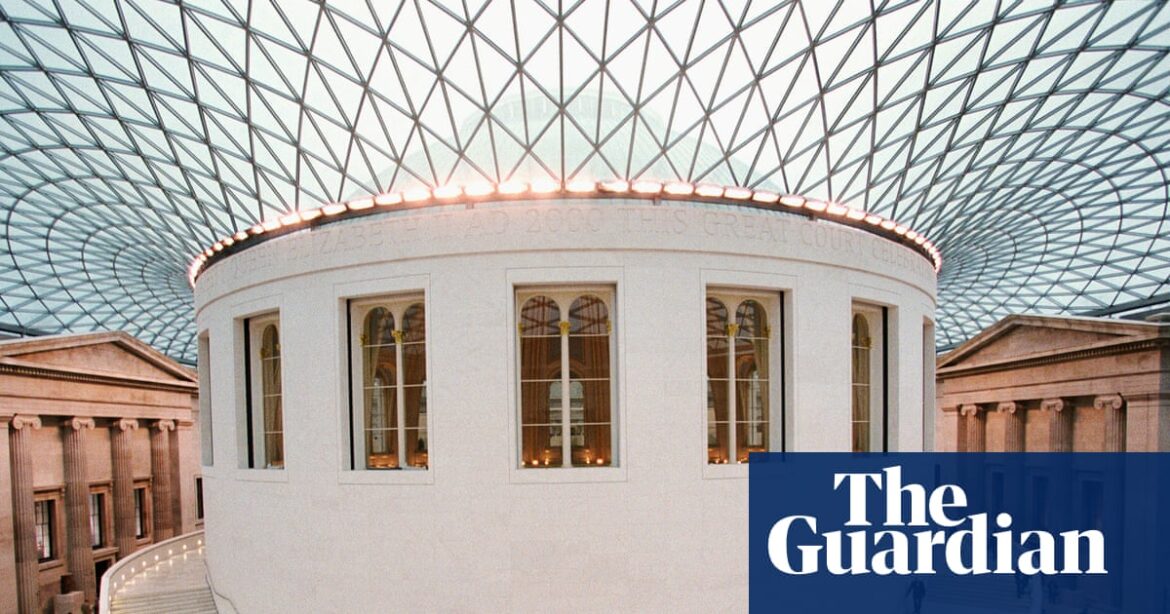The British Museum has ended a controversial sponsorship deal with a Japanese tobacco firm after reports that the government had raised questions about the deal, which some critics said was “deeply troubling”.
The Guardian understands that the museum’s board chose to not renew the 15-year partnership with Japan Tobacco International (JTI), which ended in September.
The pressure group Culture Unstained submitted a freedom of information request earlier this year, which it says revealed correspondence sent in January in which the government raised questions about the details of the deal.
The Times reports that the Department of Health and Social Care told the Department for Culture, Media and Sport that the deal could be a breach of the World Health Organization’s framework convention on tobacco control (FCTC).
The framework bars states from advertising and promoting smoking products.
JTI’s name was removed recently, coinciding with the release of a report published by the Tobacco Control Research Group that said the sponsorship deal was a key part of the firm’s lobbying strategy. JTI still sponsors the Royal Academy of Arts and the London Philharmonic Orchestra.
The move was welcomed by critics, who had been calling for an end to the deal since 2016, when 1,000 experts signed an open letter to the British Museum and the Royal Academy over what they called the morally unacceptable sponsorship by JTI.
Dr Allen Gallagher, the co-director of the Tobacco Control Research Group at the University of Bath, said such agreements “enable a deadly industry to use UK cultural institutions as a way to try and improve its public image”.
The Labour MP Dr Simon Opher, who is a GP, said: “I find it deeply troubling that a national cultural institution has been sponsored by a tobacco company for 15 years in clear breach of WHO guidelines.”
He said there were no circumstances in which public bodies should be “legitimising an industry that profits from harm”.
A British Museum spokesperson said the institution was grateful for JTI’s support and that sponsorship was a crucial way for it to secure its financial future.
“The museum operates on public and private funding, which ensures the magnificent collection remains free and accessible to the public for centuries to come,” they said.
“As a public body we have an obligation to ensure the long-term financial stability of the museum by securing funding from a number of sources. Their support enabled the museum to significantly increase accessibility and engagement with the collection for under-represented adults.”
The decision again highlights the controversies surrounding sponsorship of cultural institutions in the UK, which have often centred on the British Museum.
skip past newsletter promotion
Our morning email breaks down the key stories of the day, telling you what’s happening and why it matters
Privacy Notice: Newsletters may contain information about charities, online ads, and content funded by outside parties. If you do not have an account, we will create a guest account for you on theguardian.com to send you this newsletter. You can complete full registration at any time. For more information about how we use your data see our Privacy Policy. We use Google reCaptcha to protect our website and the Google Privacy Policy and Terms of Service apply.
after newsletter promotion
The organisation was heavily criticised when it signed a 10-year £50m deal with BP in 2023 that was called “astonishingly out of touch”.
The Guardian understands the museum is not conducting a review of current sponsorships, but the BP deal continues to hang over the museum.
When it held its inaugural Pink Ball in October, which raised £2.5m, protests about the BP sponsorship disrupted the event. Climate activists have previously held several other protests in the museum.
The museum’s leadership has continued to defend the deal. Its director, Nicholas Cullinan, has said he uses two criteria to weigh up donations and sponsorship.
“One is: was the money legally acquired? The other is: will accepting it cause us reputational damage?” he said shortly after starting at the museum. “I think you have to have very good, clear reasons for turning down money that would help to keep the British Museum free to the public.”
Members of the Museums Association, an industry body, voted last month to adopt a code of ethics that expects museums to transition away from sponsorship by “organisations involved with environmental harm – including fossil fuels – human rights abuses, and other sponsorship that does not align with the values of the museum”.


AloJapan.com